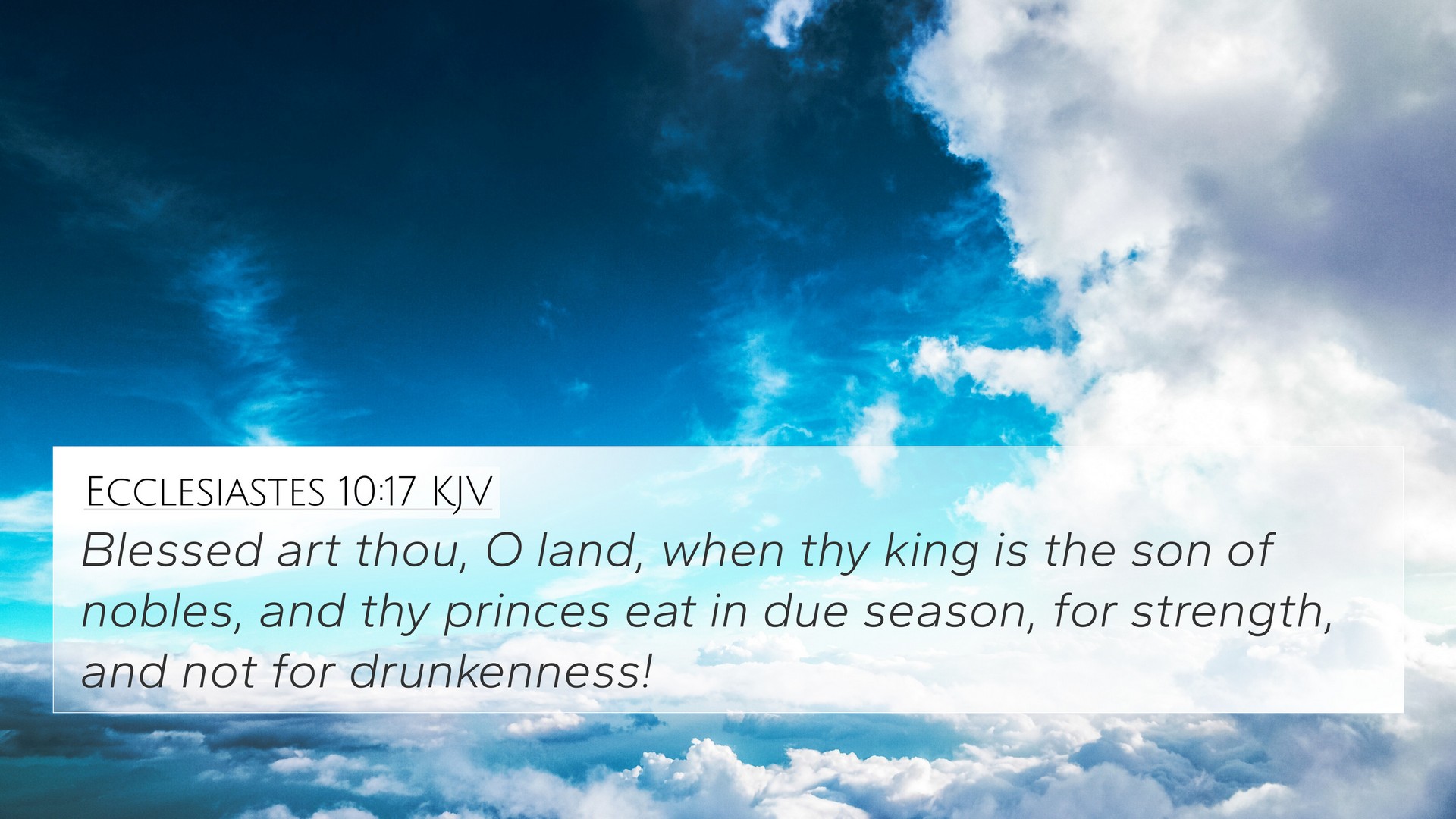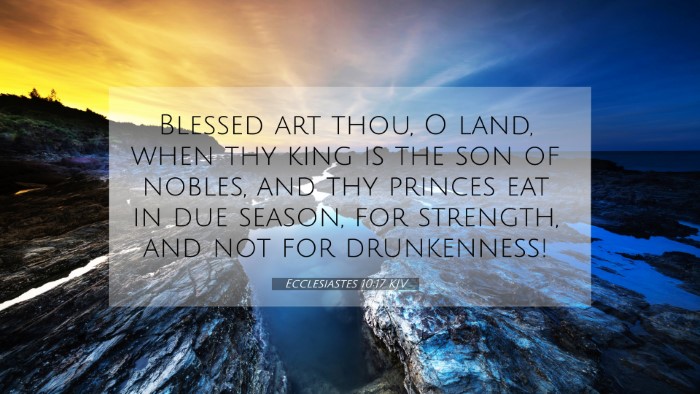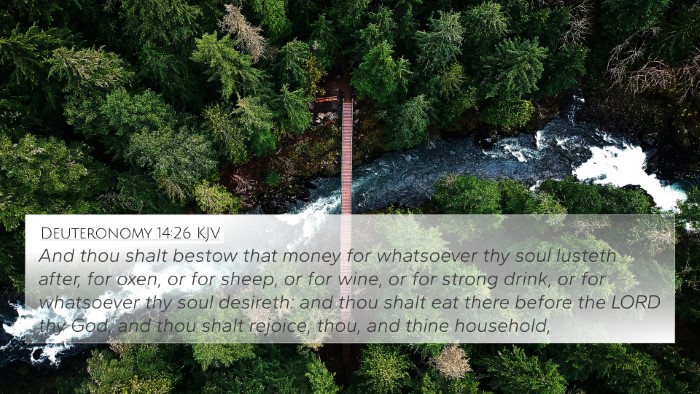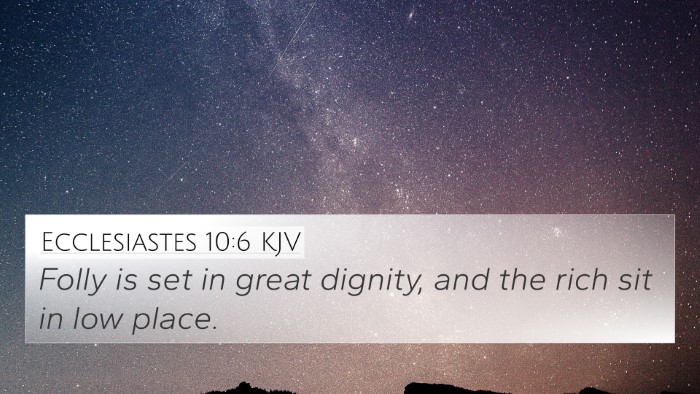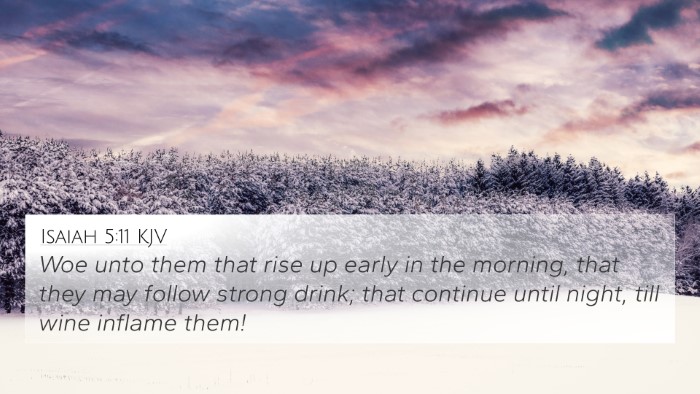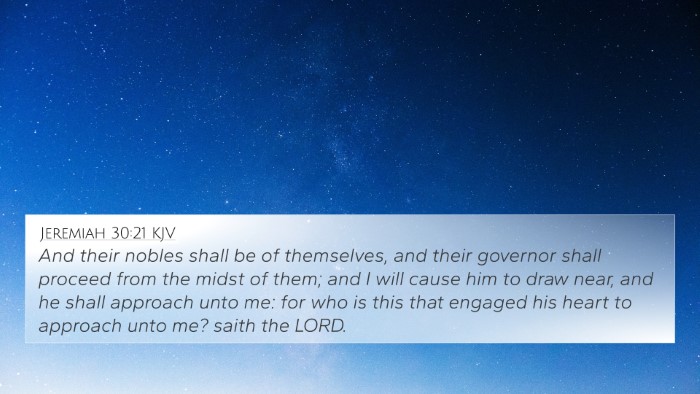Ecclesiastes 10:17 - Summary and Interpretation
Bible Verse: Ecclesiastes 10:17 - "Blessed art thou, O land, when thy king is the son of nobles, and thy princes eat in due season, for strength, and not for drunkenness!"
Meaning and Insights from Public Domain Commentaries
This verse from Ecclesiastes highlights the blessings of a prosperous kingdom that is ruled by wise leaders. The verse suggests that the character of both the king and the princes plays a fundamental role in the welfare of the land. Below, we explore insights from renowned biblical scholars.
Commentary Insights
Matthew Henry
Henry emphasizes the value of good leadership. A king "the son of nobles" implies a lineage of experience and wisdom. He notes that when leaders are wise and governed by principles, the citizens will enjoy peace and prosperity. The idea of “eating in due season” represents moderation and the importance of rulers who seek strength rather than indulgence, avoiding drunkenness which could lead to poor decisions that affect the entire realm.
Albert Barnes
Barnes interprets this verse as an affirmation of beneficial governance. He points out that a leader's proper conduct—of enjoying the blessings in moderation for the sake of strength—affects the societal structure. He also connects the juxtaposition of noble birth with moral behavior, suggesting that both lineage and conduct are critical for the blessings upon the land.
Adam Clarke
Clarke elucidates the cultural context by explaining that the title "son of nobles" indicates a rightful and just succession, conducive to the wellbeing of the people. He underscores the importance of strength over self-indulgence, illustrating that wise rulers both lead their subjects and exemplify proper behavior as stewards of their authority.
Cross-Reference Connections
Ecclesiastes 10:17 provides themes that resonate throughout the Bible. Below are some relevant cross-references that deepen the understanding of its central messages:
- Proverbs 29:2: "When the righteous are in authority, the people rejoice: but when the wicked beareth rule, the people mourn." - Highlights the correlation between leadership and societal wellbeing.
- 1 Timothy 3:1-7: Outlines the qualities of a good leader in the church, reflecting the need for noble character, similar to that of a king.
- Proverbs 16:12: "It is an abomination to kings to commit wickedness: for the throne is established by righteousness." - Emphasizes the principle of righteous leadership.
- Isaiah 32:1: "Behold, a king shall reign in righteousness, and princes shall rule in judgment." - Echoes the importance of noble and wise rulers.
- Proverbs 21:1: "The king’s heart is in the hand of the LORD, as the rivers of water: he turneth it whithersoever he will." - Shows divine control over leadership.
- Romans 13:1: Discusses the authority of governments ordained by God, reinforcing the theme of righteous leadership.
- Matthew 20:26-28: "...but whosoever will be great among you, let him be your minister..." - Highlights the servant-leader model, relevant to kingship.
Thematic Bible Verse Connections
Using tools for cross-referencing such as a Bible concordance or a comprehensive Bible cross-reference guide, one can explore the following themes further:
- Moral Leadership: Examining scriptures that emphasize righteous living for leaders.
- Moderation and Self-Control: Connections to verses about the fruit of the Spirit (Galatians 5:22-23).
- Divine Wisdom: Cross-references that shed light on the pursuit of wisdom (James 1:5).
- Social Justice: Verses that deal with the responsibilities of leaders toward their citizens (Micah 6:8).
- Historical Leadership Examples: Insights from Old Testament kings like David or Solomon regarding godly leadership.
Inter-Biblical Dialogue
Understanding Ecclesiastes 10:17 enriches the inter-Biblical dialogue on leadership and governance. The cross-references illustrate a recurring theme that emphasizes the expectation for leaders to embody righteousness, leading not only with authority but as examples for societal structure.
Conclusion
The analysis of Ecclesiastes 10:17 through the insight of various public domain commentaries and its related cross-references reveals a profound truth about the nature of leadership and its impact on society. Through the use of Bible cross-referencing tools, one can draw broader connections within scripture that form a cohesive understanding of biblical themes surrounding governance, morality, and public welfare.
